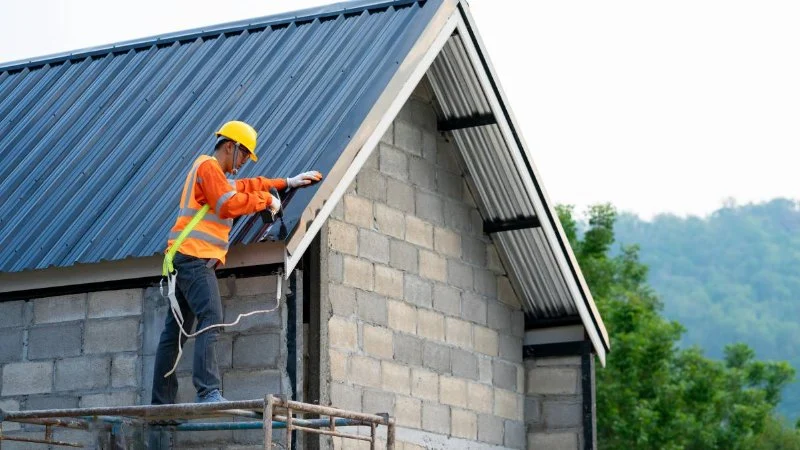
How Much Does a New Roof Cost in 2025?
- 1. Factors Affecting Roof Replacement Cost
- 2. Average Roof Replacement Cost in Canada for 2025
- 3. Different Roofing Materials and Their Costs
- 4. Costs for Roof Replacement in Major Canadian Cities
- 5. How to Save Money on Roof Replacement
1. Factors Affecting Roof Replacement Cost
When it comes to replacing a roof, the cost can vary widely based on several factors. Understanding what affects the price can help you make informed decisions when planning your roof replacement project. Some of the key factors that influence the cost of a new roof include:
- Roof Size: The larger the roof, the more materials are needed, which increases the overall cost. Larger homes or multi-story buildings will naturally have higher replacement costs.
- Roof Pitch: Steeper roofs can be more difficult and dangerous to work on, thus requiring more time and specialized equipment, which can raise the cost of replacement.
- Type of Roofing Material: The choice of material—such as asphalt shingles, metal roofing, or slate—significantly affects the price. High-end materials like slate or tile tend to be more expensive than standard asphalt shingles.
- Labor Costs: Labor charges depend on the complexity of the job and the rates in your region. Experienced contractors with specialized skills may charge higher fees.
- Roof Condition: If your existing roof has significant damage or requires the removal of multiple layers of shingles, it could increase the overall cost due to additional labor and disposal fees.
These factors combine to determine the total cost of a roof replacement. In general, understanding these variables can help you get an accurate estimate for your specific situation.
2. Average Roof Replacement Cost in Canada for 2025
As of 2025, the cost of replacing a roof in Canada typically ranges between $5,000 and $15,000, depending on the factors mentioned above. On average, most homeowners can expect to pay around $8,000 to $12,000 for a roof replacement, including labor and materials. The final price depends largely on the size and type of roof as well as the materials chosen.
Here’s a general breakdown of costs based on roof size:
- Small Roof (1,000 square feet): $5,000 to $7,000
- Medium Roof (2,000 square feet): $7,500 to $12,000
- Large Roof (3,000+ square feet): $10,000 to $15,000+
These figures include typical roofing materials like asphalt shingles. If you opt for premium materials like slate or metal, the cost can rise significantly. Keep in mind that these prices are averages and can fluctuate based on your location, the roofing company you hire, and the specifics of your home.
3. Different Roofing Materials and Their Costs
Choosing the right roofing material is one of the most important decisions when replacing your roof. Different materials come with different costs, benefits, and lifespans. Here’s a breakdown of the most popular roofing materials and their average costs:
- Asphalt Shingles: The most common and affordable roofing material, with an average cost of $100 to $150 per square (10 ft. x 10 ft.) installed. Asphalt shingles last 15 to 30 years, making them an excellent option for homeowners on a budget.
- Metal Roofing: Metal roofs are durable, energy-efficient, and can last up to 50 years. They typically cost between $400 and $1,000 per square, depending on the type of metal used (steel, aluminum, copper, etc.).
- Wood Shingles or Shakes: Wood shingles offer a natural aesthetic but come at a higher price, typically between $300 and $600 per square. These roofs last 30 to 50 years with proper maintenance.
- Slate Roofing: A premium option that is extremely durable, lasting up to 100 years or more. Slate can cost anywhere from $1,000 to $2,000 per square, making it a high-end option for homeowners looking for long-term investment.
- Tile Roofing: Tile roofs, particularly clay or concrete tiles, are known for their aesthetic appeal and long lifespan (50+ years). The cost typically ranges from $600 to $1,200 per square.
When selecting a roofing material, consider both the initial cost and long-term benefits. More expensive materials like metal or slate may offer superior durability and energy efficiency, potentially saving you money in the long run.
4. Costs for Roof Replacement in Major Canadian Cities
The cost of roof replacement can vary depending on where you live in Canada. Some major cities tend to have higher labor and material costs due to the demand for roofing services and the cost of living. Here’s an overview of what you might expect to pay in different regions:
- Toronto, Ontario: Roof replacement in Toronto typically costs between $7,000 and $12,000, with higher-end materials pushing costs upwards.
- Vancouver, British Columbia: Due to higher labor costs, Vancouver residents may pay $8,000 to $15,000 for a roof replacement, depending on material choices.
- Calgary, Alberta: In Calgary, roof replacement costs generally range from $6,000 to $11,000, with variations based on roof size and complexity.
- Montreal, Quebec: In Montreal, the cost of replacing a roof can range from $5,500 to $10,000, with asphalt shingles being the most commonly used material.
It’s important to get multiple quotes from local roofing companies to ensure that you’re getting a fair price for your area.
5. How to Save Money on Roof Replacement
Replacing your roof can be a significant investment, but there are several ways to save money without sacrificing quality:
- Get Multiple Quotes: Always get at least three quotes from different roofing contractors to compare prices and services.
- Choose the Right Material: Asphalt shingles are the most affordable option, but if you’re looking for longevity and energy efficiency, consider metal or synthetic shingles, which can save you money on repairs in the long term.
- Schedule Off-Season Work: If possible, schedule your roof replacement during the fall or winter months when roofing contractors are less busy and may offer discounted rates.
- Consider Financing Options: Many roofing companies offer financing plans with low interest rates, making it easier to spread the cost of the replacement over time.
By being strategic and informed, you can ensure that you get the best value for your roof replacement project without overspending.


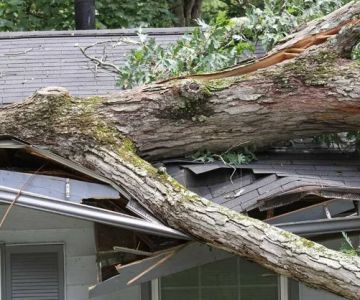
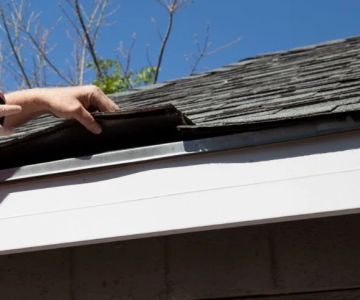
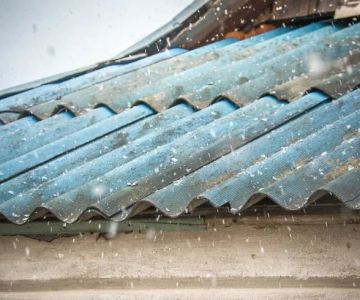
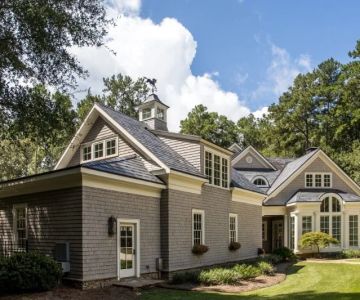
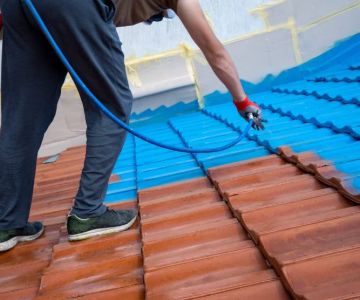
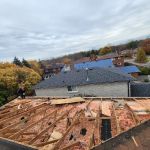 Alba Tech Roofing4.0 (47 reviews)
Alba Tech Roofing4.0 (47 reviews)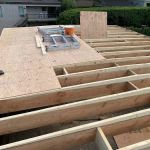 Norton Roofing Systems Ltd5.0 (6 reviews)
Norton Roofing Systems Ltd5.0 (6 reviews) Armour Shield Roofing London4.0 (122 reviews)
Armour Shield Roofing London4.0 (122 reviews) E W Smith Roofing - Toronto5.0 (6 reviews)
E W Smith Roofing - Toronto5.0 (6 reviews) Credo roofing5.0 (8 reviews)
Credo roofing5.0 (8 reviews) Triumph Group of Companies Mississauga0.0 (0 reviews)
Triumph Group of Companies Mississauga0.0 (0 reviews)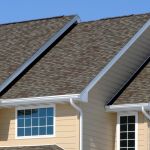 How Much Does a New Roof Cost in 2025? Canadian Roofing Price Guide
How Much Does a New Roof Cost in 2025? Canadian Roofing Price Guide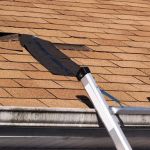 Top Signs Your Roof Has a Leak and What to Do About It in Canada
Top Signs Your Roof Has a Leak and What to Do About It in Canada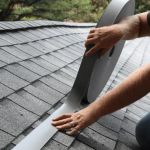 Can You Install a New Roof Over an Old One in Canada?
Can You Install a New Roof Over an Old One in Canada? The Top Questions to Ask Before Hiring a Roofer in Canada
The Top Questions to Ask Before Hiring a Roofer in Canada What Are the Most Common Roofing Scams and How to Avoid Them in Canada
What Are the Most Common Roofing Scams and How to Avoid Them in Canada How to Prepare Your Home for a Roofing Project in Canada
How to Prepare Your Home for a Roofing Project in Canada